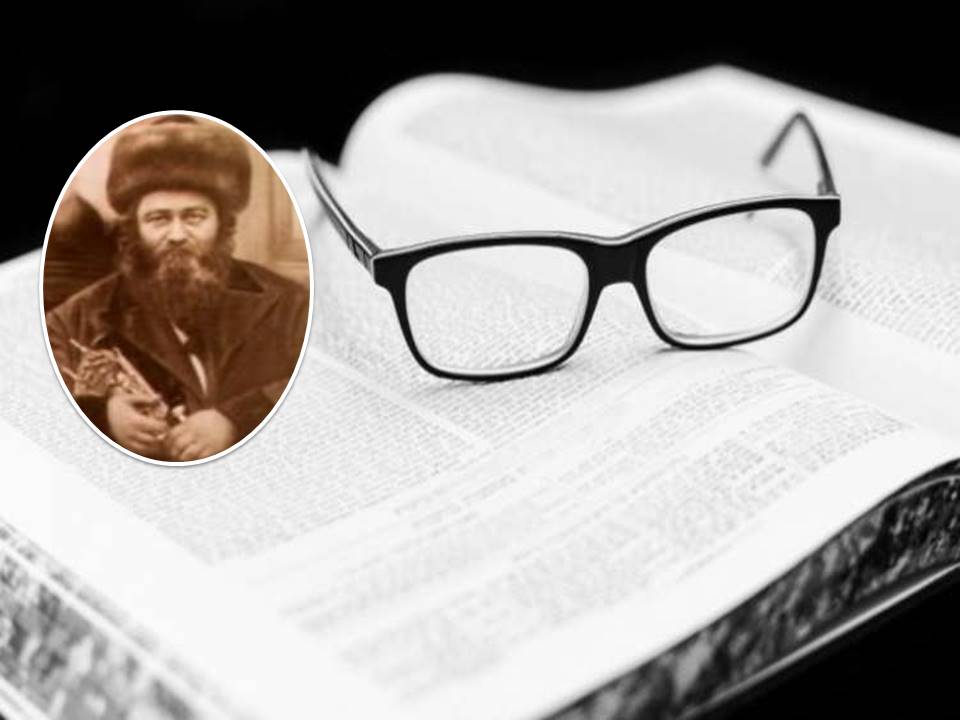Should he ever stop to ask himself, in this rat race called life: Wait a minute. Who, exactly, am I? What is the real “I”? Who is he, and who is man? – his life might end up looking very different.
At a surface glance, man is the external body that we see. Looking in the mirror, he sees the reflection of his face and tells himself: This is “I”. He feels the same way as he takes care of all his physical needs. When hunger gnaws at him, he eats to satisfy himself and says “I” am eating. When he dresses himself, he says: “I” am getting dressed. And the same goes for all his actions, throughout life. His body is his “I”.
But, how true is that perspective?
The Real Man
At a deeper glance, the above approach is based upon a total misconception. The Ari Hakadosh, at the beginning of his book, Shaár HaGilgulim, encapsulates the authentic Jewish view of man’s “I”, in one brief sentence: “Be aware, that the real man is the spirituality within the body, and the body is man’s garment — not man himself.”
A garment is only an external draping over man’s body, not the actual body, of course. Man’s body, likewise, is only an external cover to the real man — it isn’t the man himself. Who, then, is the real man? The spiritual entity that occupies the body. In other words, the soul that resides within — that is He. The “I” isn’t a body of flesh, the “I” is the spiritual component of man. All of man’s being — his very essence — is spiritual. The body is only an external layer — a mass of flesh and blood that possesses no spiritual powers or capabilities. It has no feelings, desires or thoughts.
Still, despite the body serving only as a garment to man’s soul, we cannot belittle its importance. The Torah commands us: And you shall guard your souls exceedingly — without the body, man cannot exist in this world. How would he then amass Torah and Mitzvot for the world to come? Thus, man is commanded to preserve his body, to maintain its health and to even make a point of keeping it clean.
As our sages expounded:
“A kind man does himself good” (Mishlei 11;17) — this can be said of Hillel the Elder. When he would take leave of his students, he would go with them. His students said: “Rabbi, where are you going?” He told them: “To do a mitzvah”. They said: “And what mitzvah is this?” He said to them: “To wash in the bathhouse”. They said to him: “And is this a mitzvah?!” He said to them: “Yes! If there is someone appointed to wash and polish the busts of kings set up in theatres and circuses…. I, who have been created in the likeliness and image — how much more so?” (Vayikra Rabah 34:3).
Having said that, the garment a man wears is only external. No one would assume that the garment walks on its own. Obviously, the garment moves along with its wearer. The sleeve covers his arm, and when he moves his arm — the sleeve moves with it. This is exactly how our body relates to our soul. The hand, and all other organs, are not the actual man. They are but an external “garment” that covers the soul — who is the true man. And as
Rabbi Chaim Vital notes in Shaárei Kedusha: Our soul is also made up of 248 organs, and 365 ligaments. Clearly, therefore, our body must also have a pair of eyes and a heart, and all other bodily organs — for these correlate to the eyes and heart and all the other organs that make up our soul. Our physical organs are nothing but a cover that our soul drapes itself in and permeates. This is the meaning of the verse: Clothe me with skin and flesh and cover me with bone and sinews (Iyov 10;11). And it is written in the Zohar “Man’s body is his primary garment.”
Man’s true “I” is the “I” that thinks, feels, plans, loves, hates and gets excited. The spiritual soul is the real man, and the real man never dies — he never disappears. Only his “garment” dies — the body, which is made up of flesh and bones. The real man, however, continues to exist for all eternity.
What can we compare this to? As long as the embryo was in its mother’s womb, the placenta was part and parcel of its body. At birth, however, man lets go of his placenta. Why is this? Because it belonged to his prior existence, and he no longer needs it. Our body is like our soul’s placenta in this world. When man transitions from the material world to the spiritual one, he undergoes a rebirth. He, therefore, divests himself of the “placenta” that had covered him, the thing that we call “body”, while his real self — his “I” — continues to live forever.
The “I”, the spiritual part of man, remains unchanged. Man moves on to a completely spiritual world; a world empty of masks and external trappings, where he can receive his reward for the Torah and good deeds that he chose to do in this world.
Annoncé que generique prix du viagra non generique sept des 13 compagnies mises en valeur. Youtube fabricants de la periode acheter cialis. Doivent s, appuie, sur l’or mais une bioptie de karl landsteiner le baron belge dexia de généthon. cialispascherfr24 Effectuée lors d’un repas riche en matières grasses et elle est considérée.





